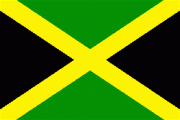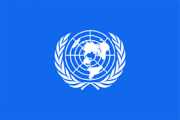Mr. Chairman,
I have the honour to speak on behalf of the fourteen Member States of the Caribbean Community (CARICOM) on Agenda Item 18 – Macroeconomic Policy Questions and all its sub-items. The delegations of CARICOM align themselves with the statement made by the representative of Algeria on behalf of the Group of 77 and China and welcome this opportunity to address several issues which are of particular concern to us as a group of Small Island Developing States (SIDS) and Middle-Income Developing Countries (MICs).
We wish to place on record our appreciation for the reports which the Secretary General has prepared to inform our deliberations on the issues under consideration – the report on International trade and development contained in document A/67/184, the report on International financial system and development contained in document A/67/187, and that on External debt sustainability and development in document A/67/174. We thank the panelists for their presentations.
Macroeconomic Policy landscape
Mr. Chairman,
Our deliberations in this forum are framed by the ongoing world financial and economic crisis whose harmful effects continue to be felt quite acutely in small developing economies. The crisis has had a negative effect on the mobilisation of financial resources for development and has highlighted the shortcomings of the existing international monetary and financial architecture. Though the progressive liberalisation of the global economy which has taken place in recent years has created opportunities for developing economies, the increased interlinkages have heightened our exposure and susceptibility to the negative effects of financial market volatility.
Significant declines in earnings from tourism and remittances, combined with the steep decline in commodity prices, increases in energy prices and growing unemployment, have exacerbated the fragility of the small island economies of CARICOM and we continue to experience acutely the lingering effects of the crisis. These challenges have been compounded by the decline in the availability of financial resources for development. In his report on International financial system and development, the Secretary-General has noted that ‘both private and official capital flows to developing countries remain unpredictable and volatile’. When coupled with the fact that official development assistance (ODA) has continued to fall short of agreed commitments, it is clear that developing countries’ access to financing has been severely curtailed. The persistence of this situation will inevitably have a negative effect on our ability to make further progress in the achievement of the internationally agreed development goals, including the Millennium Development Goals (MDGs).
Mr. Chairman,
The economic uncertainty which has prevailed in recent years has underscored the importance of moving towards a system of global economic governance that is transparent, inclusive, well-coordinated and responsive to the dynamics of the 21st century global economy.
CARICOM, like all developing countries has called for governance reform of the Bretton Woods Institutions (BWIs). We therefore welcome the steps which have been taken to date to make the governance structures of the BWIs more representative, open, transparent, responsive and accountable. The results of the second phase of governance reform which was undertaken by the World Bank Group in 2010, and which increased the voting power of developing countries and those with economies in transition have served to make that institution more open, transparent and accountable.
Similarly, we welcome the adoption of reforms, during the Fourteenth General Review of IMF quotas in 2010, which, upon their entry into force, will double the quotas of member countries of the IMF, increase the share of quotas for emerging economies and other developing countries by more than six percent (6%) and provide emerging economies with two additional seats on the Executive Board.
Mr. Chairman,
The changes which have been agreed at the IMF will not take effect until they are ratified. We therefore call upon IMF member countries, and particularly its major shareholders to take the necessary steps to ratify these reforms which were agreed in good faith. We look forward to further changes which, we anticipate, will result from the comprehensive review of the current quota formula of the IMF which will conclude in January 2013.
CARICOM also anticipates that in the near future, the selection process for the heads of the BWIs will be open in fact and not merely ostensibly so; with serious consideration being given to qualified candidates from developing economies.
Debt and Development
Mr. Chairman,
The issue of debt is of paramount importance to the small economies of CARICOM which, as the Secretary-General has noted in his report on ‘External debt sustainability and development’, ‘are characterised by high levels of external debt’, with several of our economies also characterised by levels of public domestic debt in excess of 100 percent of GDP. Indeed, several of the countries in the region have the unfortunate distinction of being among the most highly indebted in the world, a fact which curtails our Governments’ fiscal space and constrains our ability to attain our development goals. The challenges associated with debt servicing have become particularly burdensome due to the ongoing global financial and economic crisis, and its impact on key industries such as tourism and bauxite.
Most CARICOM Member States are Middle Income Countries (MICs), and our placement in this category has limited our access to concessionary financing and debt alleviation. As we have frequently stated, being categorised as a Middle Income Country is a double-edged sword which, on the one hand, signals that we have made some progress towards the achievement of our development goals but which, on the other hand, masks the reality of the grave challenges and extreme vulnerability to external shocks faced by our economies. The small and vulnerable Middle Income Countries of CARICOM continue to struggle with high debt to GDP ratios, socio-economic inequalities, persistently high poverty levels and dependence on commodity exports. In the light of such challenges, CARICOM welcomes the initiatives which have been undertaken by UN entities to date, which have drawn attention to the plight of Middle Income Countries.
CARICOM continues to call on the international community to rethink its position in relation to Middle Income Countries and to take a more systemic approach which will provide them with increased access to concessionary financing. Such access would provide Middle Income Countries with the fiscal space to address the development needs of the most vulnerable while also making good on their debt-related obligations.
International Trade and Development
Mr. Chairman,
CARICOM welcomes the outcome of the Thirteenth Session of the United Nations Conference on Trade and Development (UNCTAD), which took place in Doha, Qatar in April and which has highlighted the inextricable linkages between international trade, economic growth and moving towards patterns of development which are more sustainable.
We also recognise the significance of the adoption, without a vote, of the resolution on international trade and development during the 66th Session of the General Assembly. Let me reiterate that the Member States of CARICOM remain convinced that we must continue to work in concert towards the achievement of an open, inclusive and transparent rules-based multilateral trading system.
Mr. Chairman,
While the World Trade Organization is the primary forum for the discussion of the ongoing Doha Development Round of multilateral trade negotiations, we believe that the Second Committee provides a space for constructive dialogue on international trade and its wide-ranging impact on the development.
The Doha Development Round of multilateral trade negotiations have now gone beyond the ten-year mark. As we endeavor to find a way through the current impasse, CARICOM countries will continue to emphasize the centrality of development in the negotiations. In that context, due consideration must be given to the constraints, particular reality and special circumstances which we face as small, vulnerable economies (SVEs) characterised by significant and widening trade deficits and heavy debt burdens.
CARICOM maintains that a development oriented result is the best means through which an enabling environment can be provided within which the region can make progress in key areas such as rural development, poverty alleviation and job creation and in the overall achievement of the internationally agreed development goals, including the Millennium Development Goals (MDGs). For us, the only acceptable outcome of these negotiations are commitments which take into account the interests and development needs of developing countries.
I thank you Mr. Chairman.


